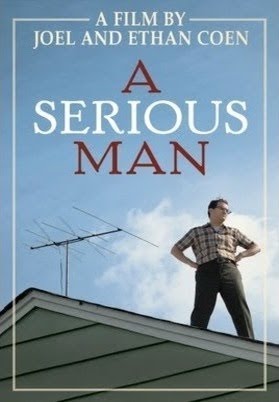OWEN: Call me. (Hands him a business card)
PRICE: How about Friday?
OWEN: No can do. Got a res at eight-thirty at Dorsia. Great sea urchin ceviche.
There is a stunned silence as he walks away and sits in a corner of the room, ostentatiously studying papers.
CLOSE-UP on Bateman’s face, cold with hatred.
PRICE: (Whispering) Jesus. Dorsia? On a Friday night? How’d he swing that?
McDERMOTT: (Whispering) I think he’s lying.
Bateman takes out his wallet and pulls out a card.
PRICE: (Suddenly enthused) What’s that, a gram?
BATEMAN: New card. What do you think?
McDermott lifts it up and examines the lettering carefully.
McDERMOTT: Whoa. Very nice. Take a look.
He hands it to Van Patten.
BATEMAN: Picked them up from the printers yesterday
VAN PATTEN: Good coloring.
BATEMAN: That’s bone. And the lettering is something called Silian Rail.
McDERMOTT: (Envious) Silian Rail?
VAN PATTEN: It is very cool, Bateman. But that’s nothing.
He pulls a card out of his wallet and slaps it on the table.
VAN PATTEN: Look at this.
They all lean forward to inspect it.
PRICE: That’s really nice.
Bateman clenches his fists beneath the table, trying to control his anxiety.
VAN PATTEN: Eggshell with Romalian type. (Turning to Bateman) What do you think?
BATEMAN: (Barely able to breath, his voice a croak) Nice.
PRICE: (Holding the card up to the light) Jesus. This is really super. How’d a nitwit like you get so tasteful?
Bateman stares at his own card and then enviously at McDermott’s.
BATEMAN: (V.O.) I can’t believe that Price prefers McDermott’s card to mine.
PRICE: But wait. You ain’t seen nothin’ yet.
He holds up his own card.
PRICE: Raised lettering, pale nimbus white…
BATEMAN: (Choking with anxiety) Impressive. Very nice. Let’s see Paul Owen’s card.
Price pulls a card from an inside coat pocket and holds it up for their inspection: “PAUL OWEN, PIERCE & PIERCE, MERGERS AND ACQUISITIONS.” Bateman swallows, speechless. The sound in the room dies down and all we hear is a faint heartbeat as Bateman stares at the magnificent card.
BATEMAN: (V.O.) Look at that subtle off-white coloring. The tasteful thickness of it. Oh my God, it even has a watermark…
His hand shaking, Bateman lifts up the card and stares at it until it fills the screen.
He lets it fall. The SOUND RETURNS TO NORMAL.
CARRUTHERS: Is something wrong? Patrick…you’re sweating.
PRICE: How about Friday?
OWEN: No can do. Got a res at eight-thirty at Dorsia. Great sea urchin ceviche.
There is a stunned silence as he walks away and sits in a corner of the room, ostentatiously studying papers.
CLOSE-UP on Bateman’s face, cold with hatred.
PRICE: (Whispering) Jesus. Dorsia? On a Friday night? How’d he swing that?
McDERMOTT: (Whispering) I think he’s lying.
Bateman takes out his wallet and pulls out a card.
PRICE: (Suddenly enthused) What’s that, a gram?
BATEMAN: New card. What do you think?
McDermott lifts it up and examines the lettering carefully.
McDERMOTT: Whoa. Very nice. Take a look.
He hands it to Van Patten.
BATEMAN: Picked them up from the printers yesterday
VAN PATTEN: Good coloring.
BATEMAN: That’s bone. And the lettering is something called Silian Rail.
McDERMOTT: (Envious) Silian Rail?
VAN PATTEN: It is very cool, Bateman. But that’s nothing.
He pulls a card out of his wallet and slaps it on the table.
VAN PATTEN: Look at this.
They all lean forward to inspect it.
PRICE: That’s really nice.
Bateman clenches his fists beneath the table, trying to control his anxiety.
VAN PATTEN: Eggshell with Romalian type. (Turning to Bateman) What do you think?
BATEMAN: (Barely able to breath, his voice a croak) Nice.
PRICE: (Holding the card up to the light) Jesus. This is really super. How’d a nitwit like you get so tasteful?
Bateman stares at his own card and then enviously at McDermott’s.
BATEMAN: (V.O.) I can’t believe that Price prefers McDermott’s card to mine.
PRICE: But wait. You ain’t seen nothin’ yet.
He holds up his own card.
PRICE: Raised lettering, pale nimbus white…
BATEMAN: (Choking with anxiety) Impressive. Very nice. Let’s see Paul Owen’s card.
Price pulls a card from an inside coat pocket and holds it up for their inspection: “PAUL OWEN, PIERCE & PIERCE, MERGERS AND ACQUISITIONS.” Bateman swallows, speechless. The sound in the room dies down and all we hear is a faint heartbeat as Bateman stares at the magnificent card.
BATEMAN: (V.O.) Look at that subtle off-white coloring. The tasteful thickness of it. Oh my God, it even has a watermark…
His hand shaking, Bateman lifts up the card and stares at it until it fills the screen.
He lets it fall. The SOUND RETURNS TO NORMAL.
CARRUTHERS: Is something wrong? Patrick…you’re sweating.
Bateman (Christian Bale)
has a hateful rivalry with Paul Owen (Jared Leto), who outplays him at
every turn, even though it’s only ever about appearances (He’s not too
fond of anyone else who outplays him as well). The rivalry is prevalent
among all these guys.
But none can touch Owen with his reservation at Dorsia or his
unrivaled business card, especially not Bateman who had to lie about a
Dorsia reservation, and whose card is second rate to at least a few
others.
This is a classic pivotal scene and inciting incident, which reveals Bateman’s deep inner conflict, torment, personal anxiety, and hatred toward Owen, and serves as the premise of the story (Bateman’s psychosis). This incident sets Bateman off on a killing spree, starting later with taking an axe to Owen to Huey Lewis’ ‘Hip to be Square'”.
This is a classic pivotal scene and inciting incident, which reveals Bateman’s deep inner conflict, torment, personal anxiety, and hatred toward Owen, and serves as the premise of the story (Bateman’s psychosis). This incident sets Bateman off on a killing spree, starting later with taking an axe to Owen to Huey Lewis’ ‘Hip to be Square'”.




